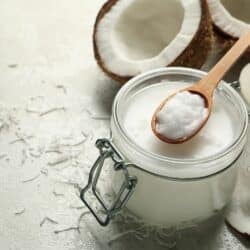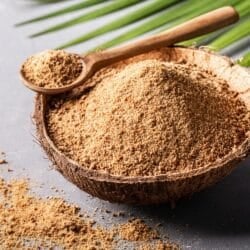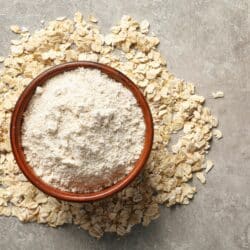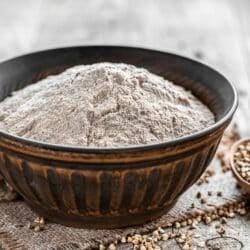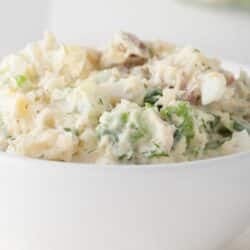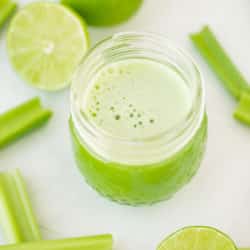How to Substitute Apple Cider Vinegar in Baking
If you’re ready to bake something but are out of apple cider vinegar, don’t worry-there are plenty of substitutes you can use. In this blog post, I’ll share six ways on how to substitute apple cider vinegar in baking so that you can still enjoy your favorite recipes.
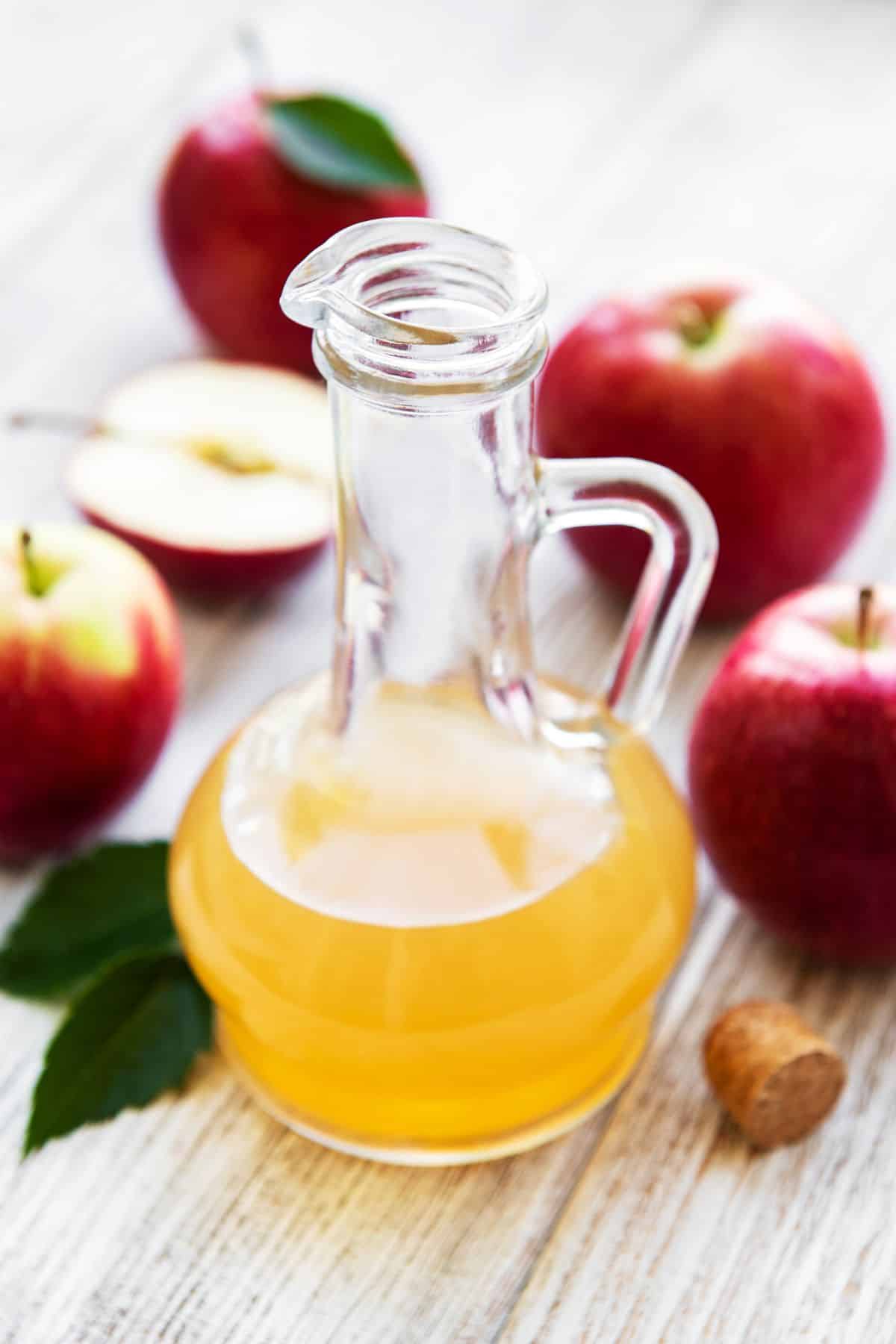
Using Apple Cider Vinegar When Baking
Here are a couple common questions about apple cider vinegar and how it’s used in baked goods.
What does apple cider vinegar do?
Apple cider vinegar has a long history of use in baking, dating back to the early days of home baking. Apple cider vinegar is made from fermented apple juice, and it has a slightly tart flavor that can be used to add a tangy kick to baked goods.
In addition to its flavor, apple cider vinegar can also help to tenderize dough and add moistness to cakes and quick breads.
When using apple cider vinegar in baking, it’s important to start with a mild-flavored variety and to use it sparingly, as too much can give your baked goods a sour taste.
Apple cider vinegar can also be used as an ingredient in homemade frostings and icing, adding a unique flavor to your desserts.
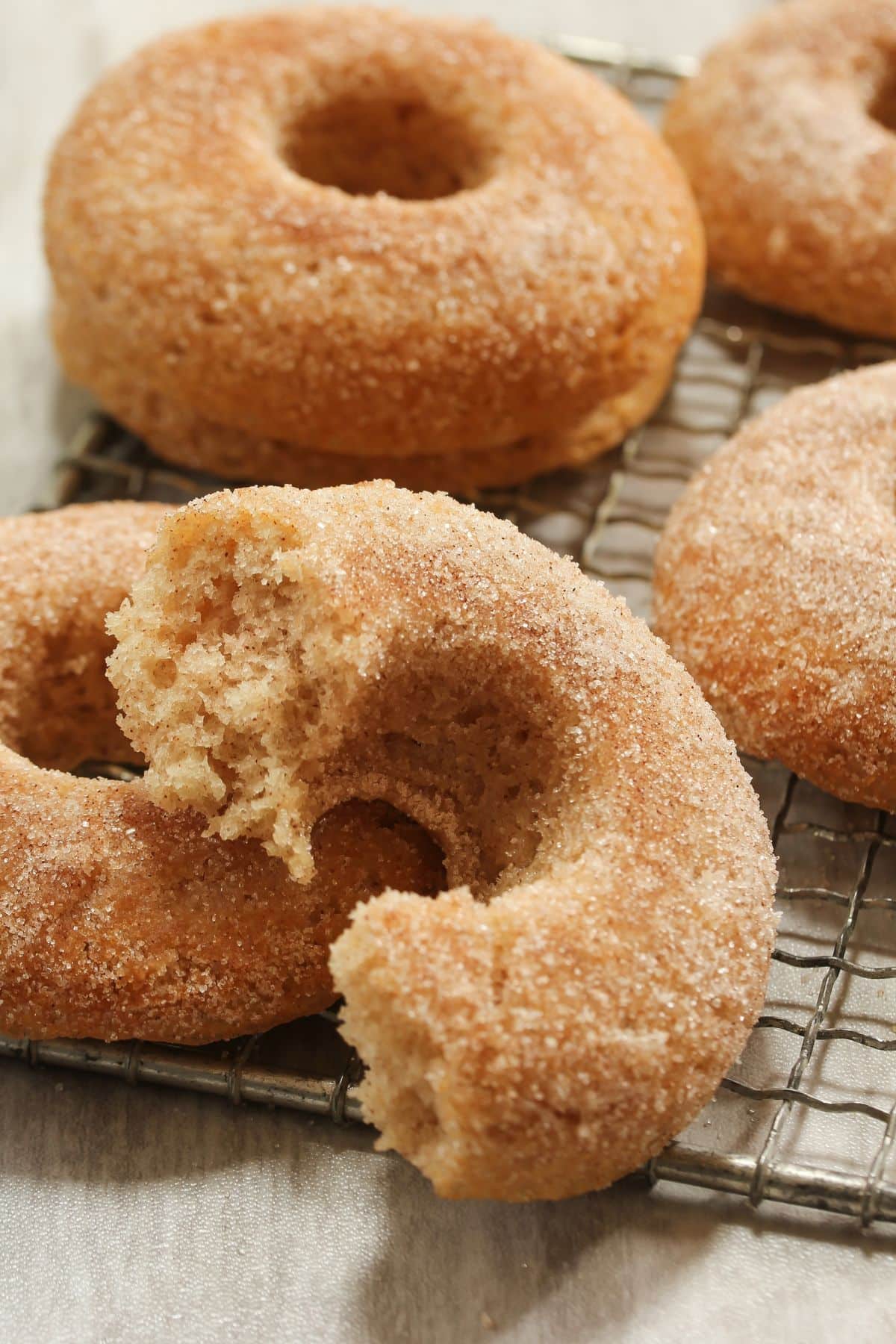
Why do you need apple cider vinegar?
Apple cider vinegar’s acidic properties help to balance the sweetness of baked goods, and it can also be used to add moistness or texture. However, there are a few things to keep in mind when using apple cider vinegar in baking.
First, it’s important to use quality vinegar. Second, be sure to add the vinegar at the end of the recipe, as it can quickly break down in the heat.
When used correctly, however, apple cider vinegar can add depth of flavor to your favorite baked treats.
Additionally, apple cider vinegar can also be used in savory dishes like salad dressings. All of these best apple cider vinegar substitutes for baking can also be used when you’ve making savory dishes as well.
Best Substitutes for Apple Cider Vinegar
If your recipe calls for ACV but you don’t have it on hand, here are the alternatives for apple cider vinegar that will yield very similar results.
1. White Wine Vinegar
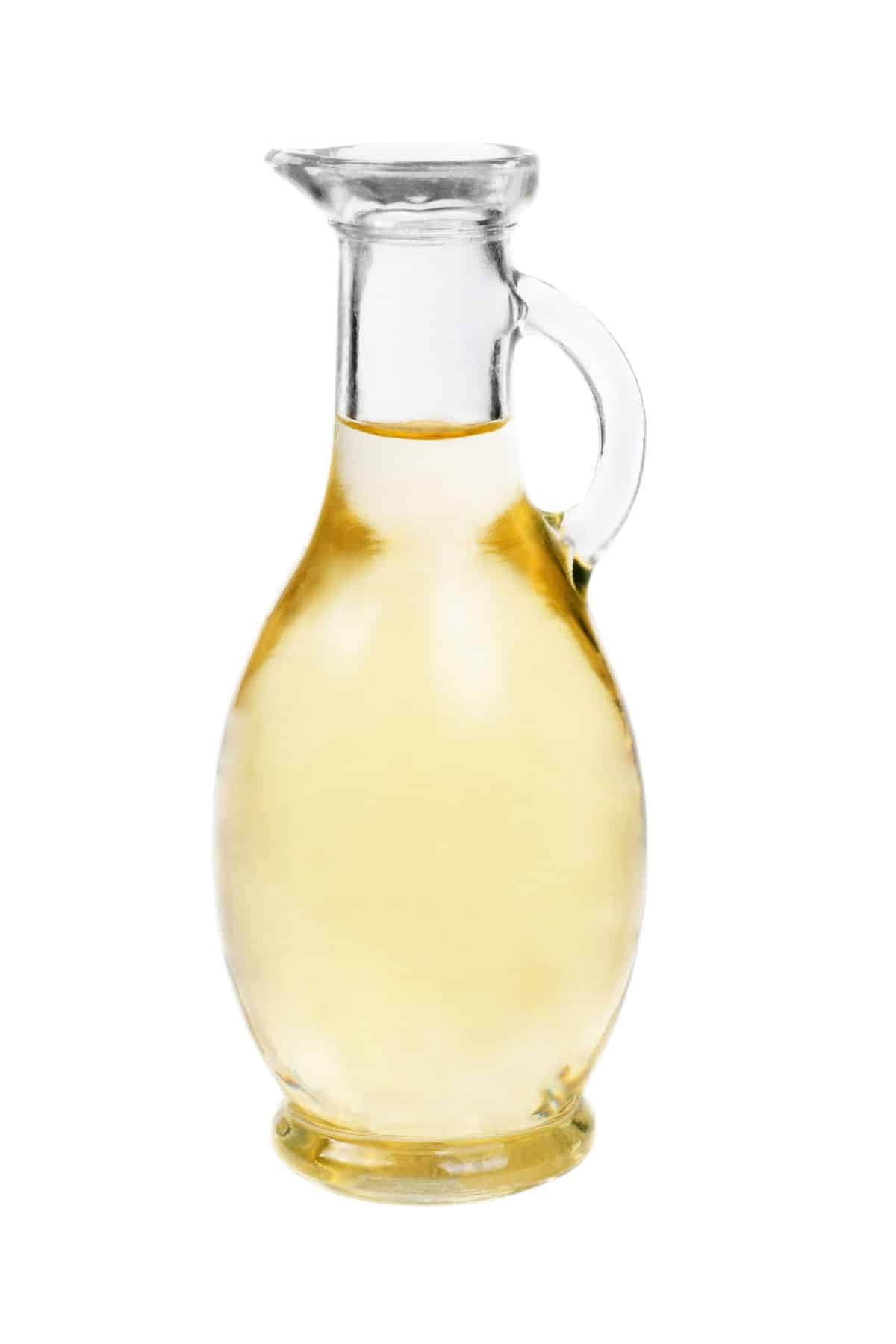
Vinegar is a key ingredient in many types of baking, from cakes and cookies to scones and quick breads. Its acidity helps to balance out the sweetness of other ingredients, and it also adds a pleasantly tart flavor.
While there are many different kinds of vinegar available, apple cider vinegar is often the best choice for baking. However, there are times when it can be difficult to find, or you may simply have another type of vinegar on hand.
In these cases, white wine vinegar is probably the best apple cider vinegar substitute. It has a similar level of acidity to apple cider vinegar, so it will provide the same flavor balance in your baked goods. Additionally, white wine vinegar is clear, so it won’t alter the color of your final product the way that some other types of vinegar can.
To substitute one teaspoon of apple cider vinegar, use one teaspoon of white wine vinegar.
2. Champagne Vinegar
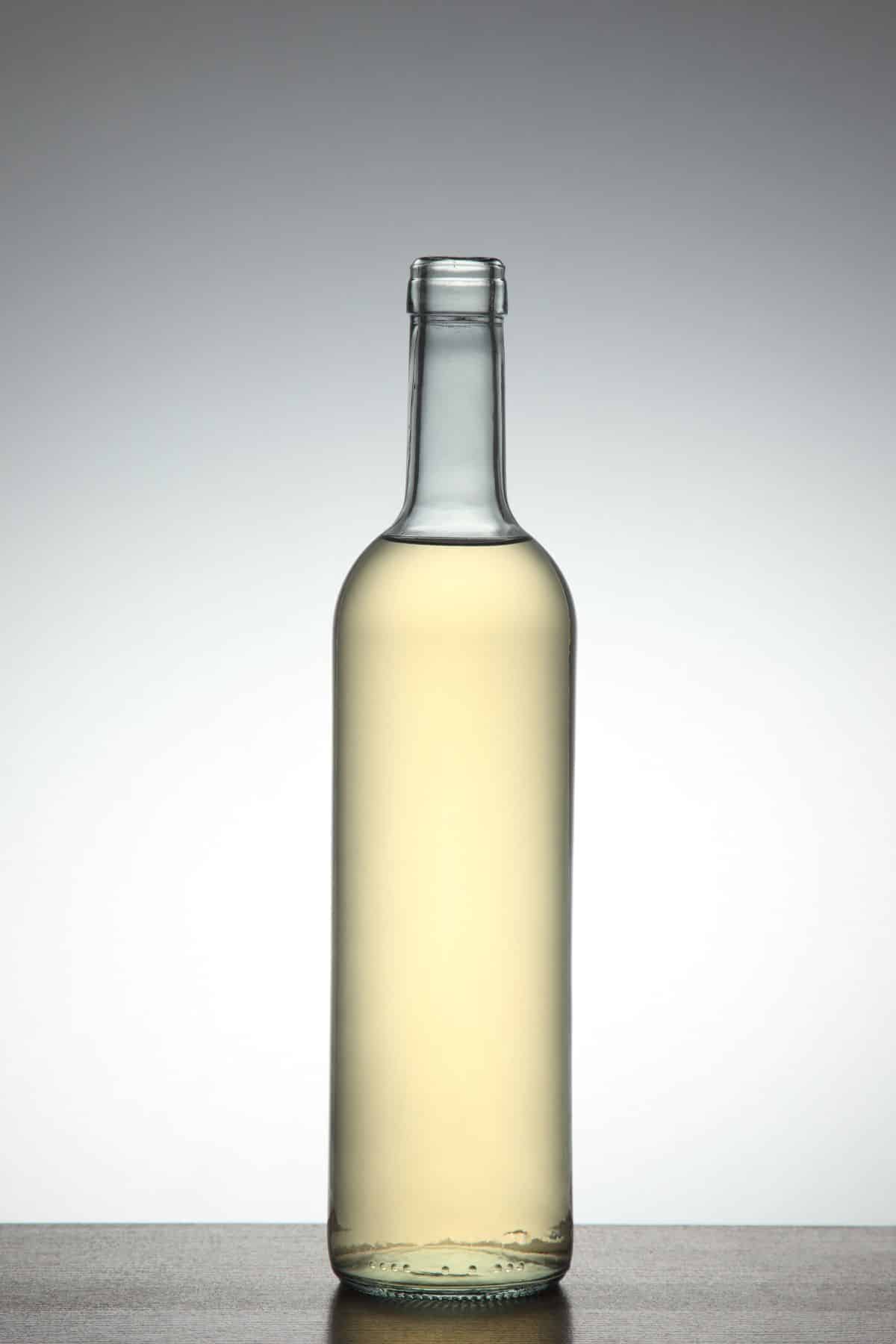
Apple cider vinegar is a popular ingredient in baking, thanks to its tart flavor and ability to help recipes rise. However, it’s not the only vinegar that can be used in baking.
Champagne vinegar, for example, is a great substitute for apple cider vinegar. It has a similar acidity level, which helps to promote rising, and it imparts a subtle sweetness that can enhance the flavor of your baked goods.
Be sure to add the champagne vinegar slowly and taste as you go, as it can be easier to over-do it than with apple cider vinegar. You may need to experiment a bit to get the flavor just right, but the results will be worth it!
To substitute one teaspoon of apple cider vinegar, use one teaspoon of champagne vinegar.
3. Unseasoned Rice Wine Vinegar

Unseasoned rice wine vinegar has a similar acidity to apple cider vinegar, making it a good choice for recipes that call for the latter. It also has a milder flavor, so it won’t alter the taste of your baked goods too much. It’s a good substitute.
One advantage of using unseasoned rice wine vinegar is that it won’t add any extra salt to your recipe. This is because the vinegar is made from distilled rice wine, rather than fermented rice wine like some other types of vinegar. As a result, it has a relatively neutral flavor that won’t compete with the other ingredients in your recipe.
To substitute one teaspoon of apple cider vinegar, use one teaspoon of rice wine vinegar.
4. Red Wine Vinegar
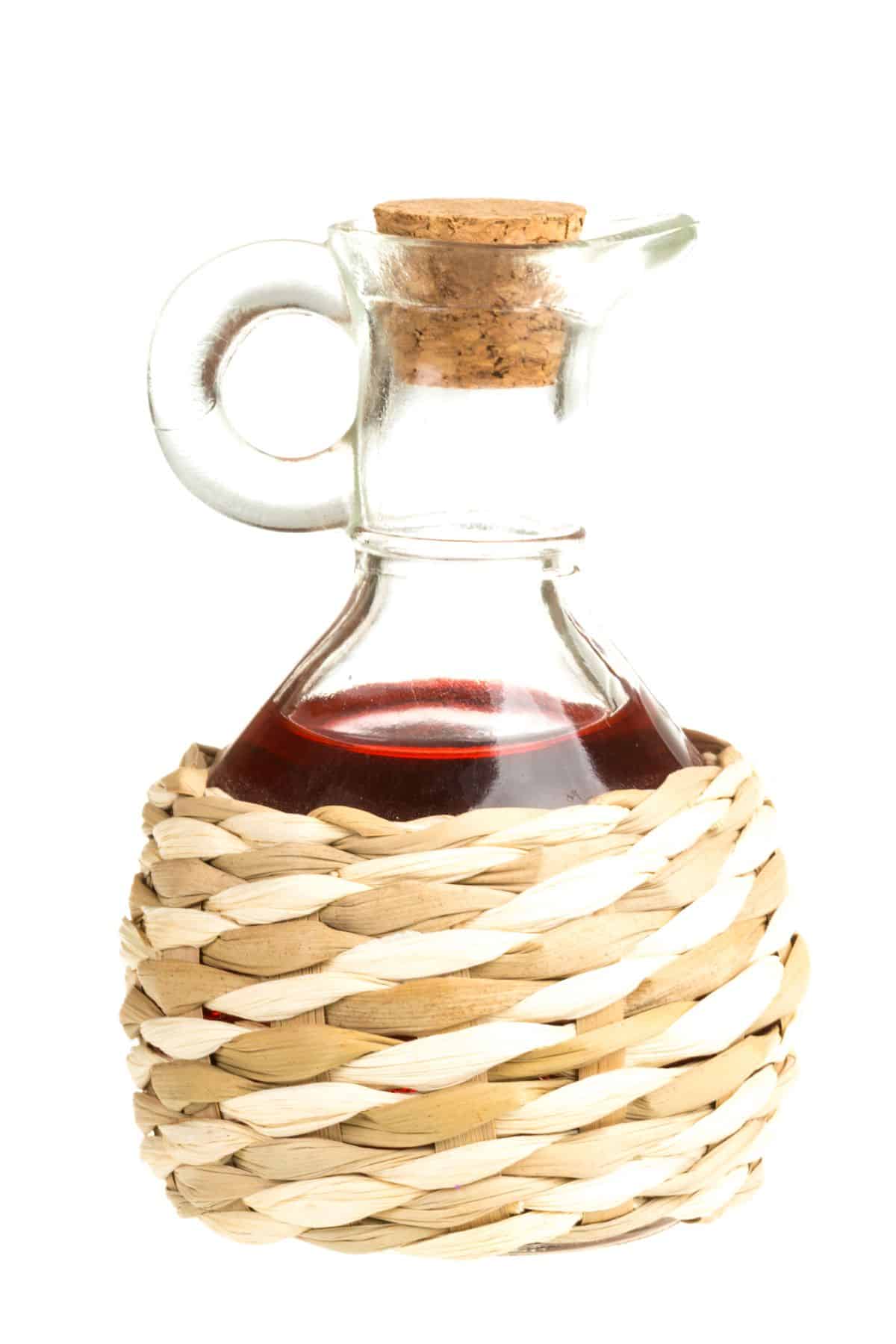
There are many types of vinegar available on the market today, and each one has its own distinctive flavor. When baking, apple cider vinegar is often used to add a tartness to recipes. However, red wine vinegar can be used as a substitute for apple cider vinegar in baking.
The slightly fruity flavor of red wine vinegar can enhance the flavor of cakes, cookies, and other baked goods. In addition, red wine vinegar can help to tenderize dough and give it a light, fluffy texture. It will give you the same flavor profile as if you used ACV.
When substituting red wine vinegar for apple cider vinegar in baking, it is important to use a 1:1 ratio. This will ensure that your baked goods still have the desired level of tartness.
To substitute one teaspoon of apple cider vinegar, use one teaspoon of red wine vinegar.
5. Sherry Vinegar
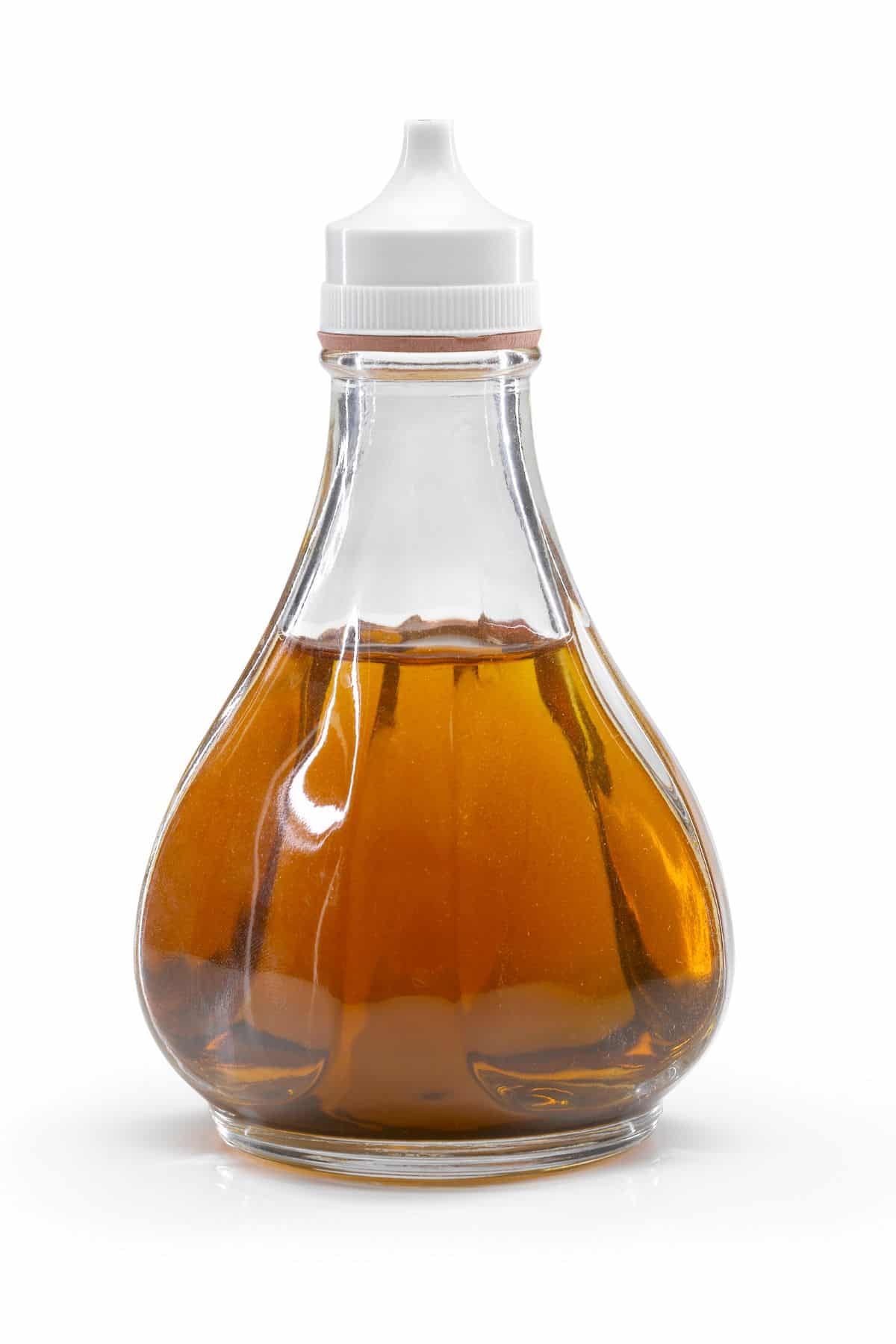
Sherry vinegar is a type of vinegar made from dry white wine. It has a milder flavor than apple cider vinegar, making it ideal for use in light-colored cakes and cookies.
Sherry vinegar is one option that can be used in place of apple cider vinegar. It has a similar tartness and can be used in both sweet and savory dishes. However, sherry vinegar is also quite a bit sweeter than apple cider vinegar, so you may need to adjust the other ingredients in your recipe accordingly.
To substitute one teaspoon of apple cider vinegar, use one teaspoon of sherry vinegar.
6. Balsamic Vinegar
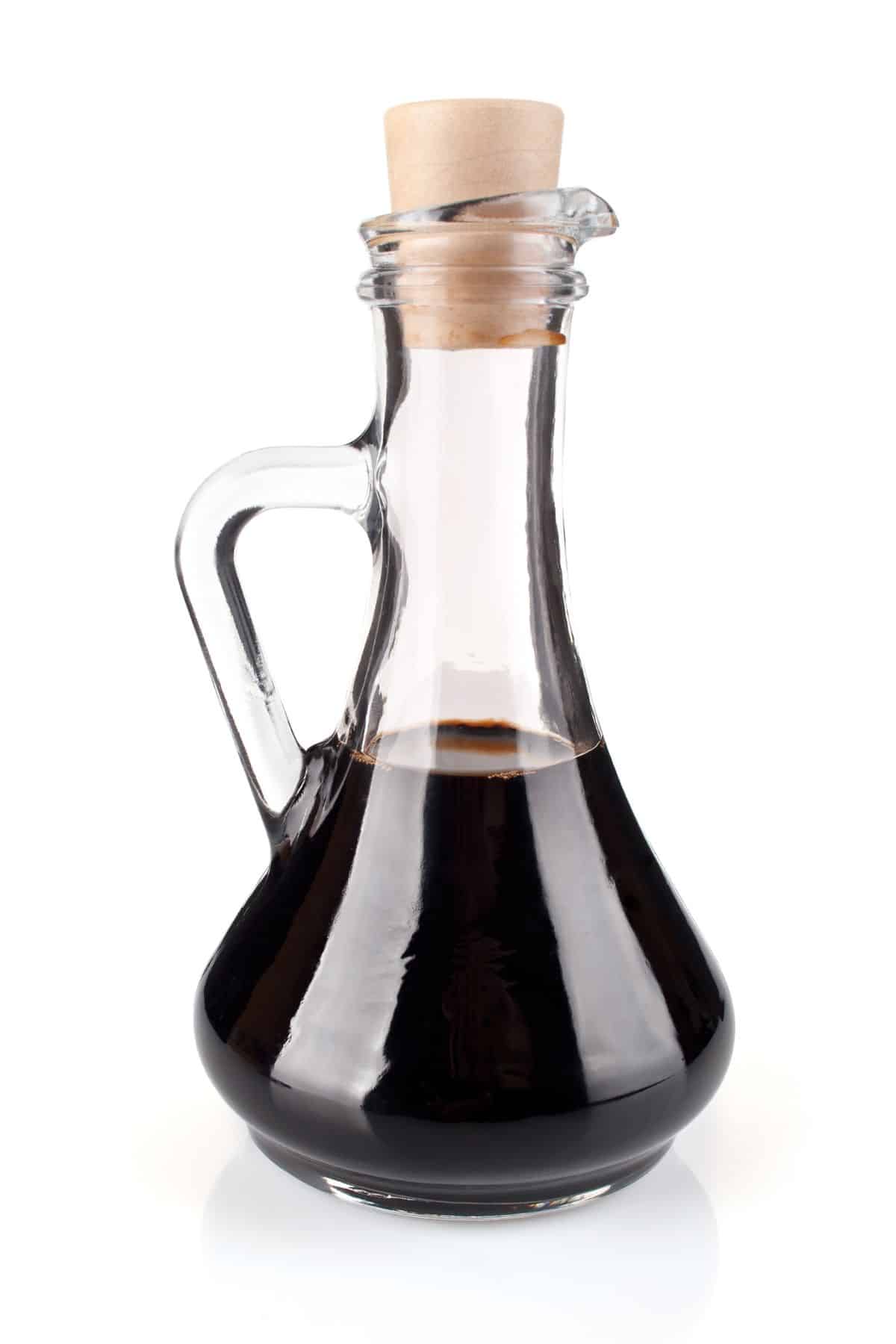
Balsamic vinegar is a great substitute for apple cider vinegar in baking since it has a similar acidic taste. This can help to balance out sweet flavors. In addition, balsamic vinegar is dark in color, so it can give baked goods a rich, caramelized flavor.
To substitute one teaspoon of apple cider vinegar, use one teaspoon of balsamic vinegar.
7. Bonus recommendations
If you don’t have any vinegars on hand or you need to avoid them for any reason, you’ll be happy to know that you can simply use citrus juice like orange juice as an apple cider vinegar replacement.
You could also use lemon juice or lime juice from fresh lemons or fresh limes. A tablespoon of lemon juice can be substituted for a tablespoon of apple cider vinegar and provide the same fruity taste with a little tartness.
Additional Articles About Substituting Ingredients
- Best Substitutes for Arrowroot Powder
- Best Substitutes for Agave Nectar
- Best Substitutes for Butter in Chocolate Chip Cookies
- Best Substitutes for Cocoa Powder
- Best Substitutes for Milk in Instant Pudding
- Best Substitutes for Olive Oil
- Best Substitutes for Rice Flour
Even More Helpful Substitute Articles
Conclusions
There are many types of vinegar available on the market today, and each one has its own distinctive flavor. When baking, apple cider vinegar is often used to add a tartness to recipes. However, there are many substitutes that can be used in place of apple cider vinegar. Experiment with different types of vinegar to find the one that best suits your taste.
Don’t forget to join my newsletter list to get exclusive clean eating recipes and tips. The newsletter is 100% free with no spam; unsubscribe anytime.
About the Author: Carrie Forrest has a master’s degree in public health with a specialty in nutrition. She is a top wellness and food blogger with over 5 million annual visitors to her site. Carrie has an incredible story of recovery from chronic illness and is passionate about helping other women transform their health. Send Carrie a message through her contact form.



